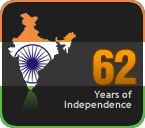 I take pride in the fact that I speak, read and write many languages. 5 to be precisely immodest. English, Hindi, Malayalam, Tamil, Sanskrit. Additionally, I also speak Kannada a little, a bit of Bangla/Bengali and some Putonghua (Mandarin).That will make the tally 8 and take it upto 9 when I learn Spanish after I am done with learning Mandarin. Now that I have boasted my vain self off to such an immodest start, let me embark on glorifying the whole effort!
I take pride in the fact that I speak, read and write many languages. 5 to be precisely immodest. English, Hindi, Malayalam, Tamil, Sanskrit. Additionally, I also speak Kannada a little, a bit of Bangla/Bengali and some Putonghua (Mandarin).That will make the tally 8 and take it upto 9 when I learn Spanish after I am done with learning Mandarin. Now that I have boasted my vain self off to such an immodest start, let me embark on glorifying the whole effort!I am currently trying to learn the Chinese Mandarin language from a kind and patient teacher who has miraculously survived the onslaught of my embarrassingly off-track Chinese pronunciations for the zillionth time in a span of 3 months. This gentleman who goes by the name Mr. Wichin Wang Tao is the human epitome of patience and purpose. He never fails to correct me with a smile and always encourages me to speak correctly.
The language is sheer poetry, both in the written and the spoken form. Since it is a phonetic language, each sound and its intonations have a meaning and so does each written character. It amazes me that by writing one character, the Chinese express a complete thought in itself! Which is why I call it poetry!. Imagine what a collection of characters can mean if each character can have meaning on its own. Compare it with English, barring the albhabet ‘A’ I, ‘N’ and X none of the alphabets mean anything by itself and always need a combination of characters or alphabets to form words that have some meaning.
Mandarin is the language spoken by the largest number of people in the world and people like me are adding to that population and will continue to do so in larger numbers. In spite of being the language spoken the most in the world, it has its myriad number of variations that are unique to each province or even with multiple dialects in the same province with most dialects not being understood by all. The common thread in between is the Mandarin language which is the official language of the Peoples Republic of China.
I am told that there are 5000 characters of Mandarin that are commonly used by Mandarin speakers in normal day to day life. In the same breath, I am told that Mandarin has over 25000 characters in the simplified version and much more in the traditional version. Now that’s a lot of language one needs to learn to master this language. Compare with the 26 alphabets of English and I can almost feel the embarrassment that the English language must be feeling! So lets not compare, lets just accept that each language is unique and is beautiful in its own way and also equally powerful for communication. With the peace made, let me move on to other areas on the language.
I also notice that there are a few words in the Indian language that are similar to that of Mandarin. Cha – means tea in most Indian languages and in Mandarin!, neyyo is butter in Mandarin, while neyy is ghee (melted butter) in many South Indian languages. Paapa is father is Mandarin, while papa is father in Hindi and many other languages. Maybe even in English!, I will not venture further in that direction!
Most of all, I enjoy the most when I speak a few words to my Chinese friends in Mandarin and realize that I have got the word, the pronunciation, the intonation and the tone right. My reward is the wide smile of happiness I see on my Chinese friends’ face when I speak Mandarin and am thrown a volley of Mandarin to deal with from their end! I get the feeling that I am instantly welcomed into a different sphere of their heart and life which I wouldn’t have been able to go into if I was just another “laowai”. “Laowai” in Mandarin means foreigner with an unpleasant undertone. It’s the most beautiful reward that anyone can get for speaking this very beautiful language.






No comments:
Post a Comment